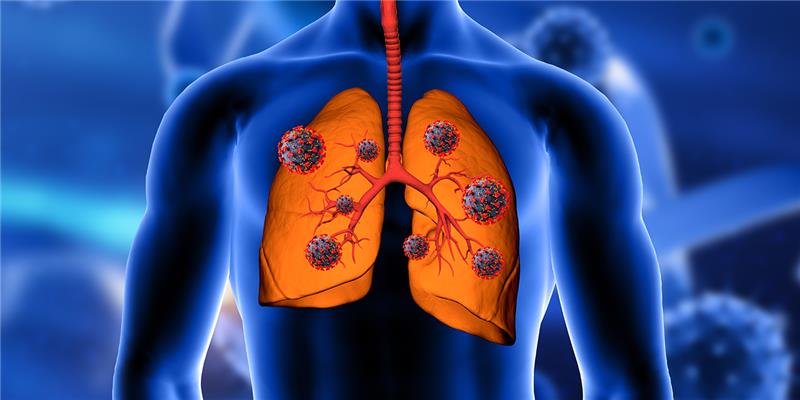
Book a Consultation
Thank you!
Your form has been sent successfully.



October 04, 2022
The pancreas is a gland located behind your stomach and in front of your spine. It converts the foods we eat into fuel for our bodies.
When the cells in the pancreas undergo mutations, it results in pancreatic cancer. Exocrine tumors and neuroendocrine tumors are the two forms of cancers that develop in the pancreas. Exocrine tumors make up roughly 93% of all pancreatic tumors, and adenocarcinoma is the most common form of pancreatic cancer.
Pancreatic cancer is challenging to treat since it is often found late and spreads quickly. The possible treatment options for pancreatic cancer include the following:

If cancer has not progressed to blood arteries, lymph nodes, or other organs, surgery can be done as a potentially curative procedure. Most pancreatic cancer patients already have metastatic disease at the time of diagnosis. The surgical removal of their primary tumor would not be beneficial for these patients. However, in individuals with metastatic cancer, surgery may be done to treat symptoms.
The sort of procedure used to remove pancreatic cancer depends on the stage and location of the tumor for surgical candidates. Systemic therapy and/or radiation therapy may be coupled with surgery for pancreatic cancer.
High-energy particles or waves are used in radiation therapy to destroy tumor cells. Modern radiation machines employ multiple beams of radiation that are directed at different angles and toward different parts of the body.
This method limits radiation exposure to healthy nearby tissue while concentrating on treating the main tumor. Like an X-ray, radiation therapy doesn't hurt while it's given and doesn't make patients radioactive afterward. During surgery, radiation treatment may be administered in specialized medical facilities (intraoperative radiation).
Traditional radiation therapy uses X-rays to treat cancer, but some institutes also provide a more recent radiation treatment that uses protons. Proton therapy may be used to treat pancreatic cancer in some cases and may have fewer side effects than conventional radiation therapy.
Chemotherapy for pancreatic cancer uses medications to kill cancer cells by preventing their division and growth. These medications destroy cancer cells all over the body as they circulate through the bloodstream.
The tumors may get smaller or stop growing after receiving chemotherapy. It may be administered alone, in combination with surgery, radiation therapy, or targeted therapy. If the patient is in good enough health, two chemotherapy medications may be combined to treat pancreatic cancer. They can be administered orally or intravenously.
Palliative care is a type of specialist medical treatment that concentrates on relieving pain and other severe sickness symptoms. Hospice care and end-of-life care are not the same as palliative care. Teams of doctors, nurses, social workers, and other professionally qualified specialists offer palliative care. The goal of these teams is to enhance the quality of life for cancer patients and their families.
Specialists in palliative care collaborate with you, your loved ones, and your other doctors to offer an additional level of support that supplements your current medical care. It is frequently utilized in conjunction with invasive procedures like surgery, chemotherapy, and radiation therapy.
Clinical trials are research programs that test new therapies, including systemic therapy and newer radiation or surgical techniques. The treatment tested might replace the present standard of care if it turns out to be safer and more efficient.
You may have the opportunity to test out new targeted therapies, chemotherapeutic medications, immunotherapy-therapies, or vaccinations through clinical trials for pancreatic cancer.
Clinical studies may have negative or unanticipated side effects, and they cannot promise a cure. On the other hand, to make sure they are carried out as safely as possible, cancer clinical studies are rigorously watched. Additionally, they give you access to treatments that you otherwise wouldn't have.
You may want to discuss whether clinical trials could be suitable for you with your doctor.
If you are looking for advanced cancer treatment centers in Florida, consider ACTC. We provide personalized treatment plans for each patient based on an in-depth understanding of their needs. If you've been diagnosed with pancreatic cancer and need personalized treatment, call 352-345-4565 to schedule an appointment.



December 16, 2025
Hearing a HER2 gene mutation on a report can feel scary, but it also p...
KNOW MORE

December 16, 2025
Seeing a dark streak under your nail that doesn't fade or grow out can...
KNOW MORE

December 16, 2025
If you're worried that an itchy or stubborn rash could be cancer, you'...
KNOW MORE

December 16, 2025
Hearing that your CT scan shows a spot on your lung can be unsettling....
KNOW MORE

November 13, 2025
Food choices feel high-stakes during cancer care, and because of that,...
KNOW MORE

November 13, 2025
Ablation treats prostate cancer using energy such as heat, cold, elect...
KNOW MORE
